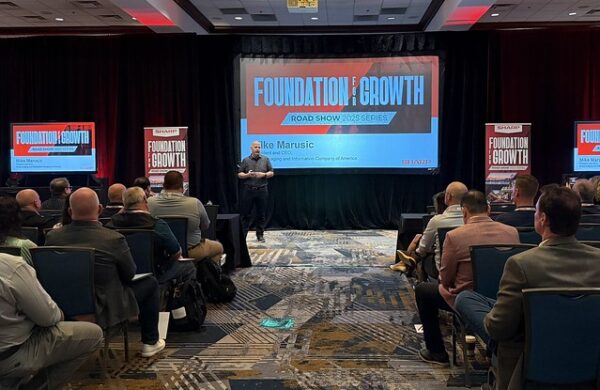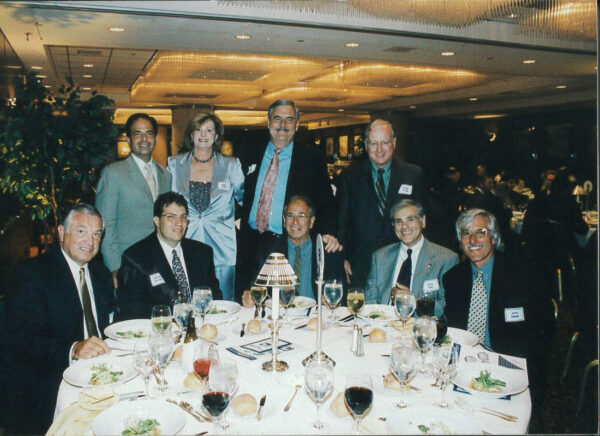We have all been trying to understand how the contraction of our industry will ultimately affect the dealer channel. We are optimistic, but there are potential danger signs that we believe you should be aware.
As many of our readers know, we have been in the industry since 1971. What has happened over the last 49 years that would cause me some concern for the independent dealer channel?
The answer is simply major corporations or financial institutions that acquire manufacturers, software developers, and vendors of all kinds have little appreciation of how dealers make their money. Worse, they have no awareness of the relationships that those same dealers have with their manufacturers, leasing companies, and suppliers.
You are probably asking why? Allow me to give you the history as we have lived it, which leads to our inevitable conclusion.
In 1974 while working for Canon U.S.A. I was asked to attend a conference in Boston by the people who eventually started Dataquest. The focus of the conference was the Japanese manufacturers entering the U.S. market to sell their plain-paper copiers. The burning question was, “Can dealers sell plain-paper copiers?”
The presentation was extremely negative and when I stated my opinion that they got it wrong you will more than likely not believe the response.
“Do you honestly believe dealers that place their coated paper machines in the backs of their station wagons and demo a copier that sells for $1,500 (give or take) on a line of $5,000 or more plain-paper products and do it the same way?”
The so-called experts were enamored with Xerox and IBM and assumed that no dealer could compete in the plain-paper environment of that time. They had no concept of how successful dealers were at retaining their customers. The concept of a continuing upgrade potential was beyond the so-called experts’ ability to comprehend.
We went through the same exercise with facsimile when we were told dealers could not sell fax. The rationale was Xerox owns that business and had 600,000 machines in field. The earliest Japanese models were Group 2 and were not compatible with the Group 1 Xerox models. Consider this, the time to transmit a letter sized document on Group 1 was six minutes. The early Sharp and Canon models took about 14 seconds.
The Japanese fax manufacturers’ second releases were all compatible with Xerox Group 1 and competitive Group 2 machines. That was quickly followed by Group 3 which reduced the transmission time to six seconds and was compatible with Group 1, 2, and 3. Xerox eventually left the facsimile business.
The next thing dealers could not sell was word processing. Neither would they be able to sell laser printers, and certainly not color laser printers.
The technology was taking us from analog to digital. The prevalent thinking was dealers would not be able to connect digital machines to a computer, let alone hang one on a network. Color digital copiers were also deemed beyond a dealer’s abilities to market, sell, and service.
Enter the mega dealers. Alco, Hillman, Erskine, and Danka. Financial analysts covering the market said no way can dealers compete with the mega dealer.
You would think that after 20 years of dealers proving the collective geniuses wrong, they would think better of the independent dealer channel. That has not been the case. In fact, one company has tried multiple times to penetrate the channel with disastrous results.
We know because we were engaged by many of these companies and therefore owe them a degree of confidentiality. Their approaches bordered on simplistic concepts based on a false premise.
Allow me to share two stories that best describe the latter. A client was purchased by a large company successful in the upper end of the market they jointly served. The difference was our client was in the business of selling to dealers.
When we asked if we could be of any help, the president who was asked to stay on said yes. Perhaps we can do a presentation and have a conversation about the challenges and opportunities of selling to dealers. We said of course. We went one further and offered to interview the group vice president of the new parent and give him an opportunity to tell his story to our dealer audience. We never received so much of a no thank you. That was nine years ago. I understand that person retired last year. We never met him. We were fortunate that we were able to maintain the client as they continued to operate with a degree of independence.
Some four years after the client was acquired, CJ suggested we invite that same senior executive to our client partner dinner. At our client/partner dinner meeting you will find the CEOs of companies such as Sharp, Toshiba, Kyocera, Konica Minolta, and important executives from Canon and Ricoh. In addition, you will also meet the president and senior vice president from two of the leading leasing companies in our industry. The rest of the guest list include CEOs of software developers or distributors, a toner manufacturer as well as a major parts provider. This senior executive turned down the opportunity to meet the leading executives of some of their most important outlets.
In another instance a major company acquired a key client/partner. The client wanted to continue the relationship with us, and it took them about four months to convince the new owners we were worth the effort. We seriously doubt this relationship will end well for either of us.
Based on our experiences, acquirers are often ignorant of the channel partners that are essential to the health and wellbeing of their newly acquired company. It is not uncommon when we are engaged to listen to the plans the acquirer has for selling to the dealer. They seldom ask us for our opinion and when we offer to venture one, they simply do not listen. We often wonder why they hire us.
Will this attitude held by many outsiders of our industry ever change? For most of them, not in my lifetime.
Access Related Content
Visit the www.thecannatareport.com. To become a subscriber, visit www.thecannatareport.com/register or contact cjcannata@cannatareport.com directly. Bulk subscription rates are also available.



